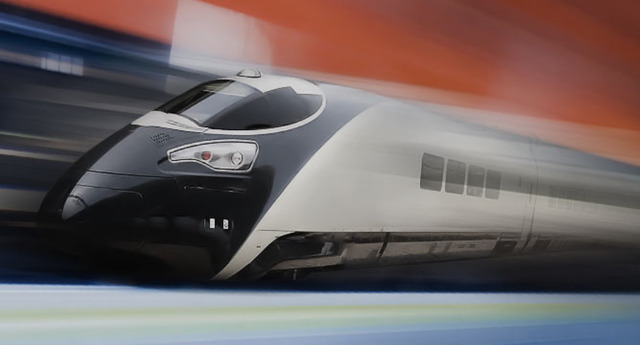South Korea’s largest automaker, Hyundai Motor, and its locomotive arm, Hyundai Rotem, are slated to develop a hydrogen-powered tram by 2020, which will be the first of its kind in the nation.
On Monday, Hyundai Rotem said the two companies had agreed to cooperate on developing a train powered by hydrogen. Hyundai Motor plans to deploy hydrogen fuel cell stacks on trains developed and manufactured by Hyundai Rotem, which will also build the system interface to be installed between train cars.
 |
Hyundai Rotem |
They plan to develop a hydrogen-powered train that can travel up to 200 kilometers per single charge at a maximum speed of 70 kilometers per hour. The production of the prototype will be completed by 2020.
The announcement of the joint project comes after President Moon Jae-in met in January with Hyundai Motor Group’s de facto leader, Chung Eui-sun, in Ulsan, home to the firm’s automobile industries. There, Moon reiterated the government’s strong willingness to make the nation the global No. 1 in the hydrogen car and fuel cell market by 2030.
A hydrogen-powered train, which works by converting hydrogen into electricity, is eco-friendly as it does not emit air pollutants. It also saves on costs without requiring power infrastructure and maintenance.
Hyundai Motor is a leader in hydrogen vehicles. Its latest FCEV, Nexo, can travel 609 kilometers on a single charge, the longest range in the world for a green car, at a speed of 180 kilometers per hour. It has also launched hydrogen buses, which travel 440 kilometers on a single charge at a speed of 103 kilometers per hour.
Hyundai Rotem plans to further develop hydrogen-powered trams and locomotives in the future in cooperation with Hyundai Motor.
Separately, a state-run project to develop a hydrogen-powered train is ongoing in Korea.
The state-run Korea Railroad Research Institute started a project to build the train in April 2018 with an investment of 22 billion won ($18 million) in cooperation with the Ministry of Land, Infrastructure, and Transport.
By December 2022, the Korea Railroad Research Institute aims to develop a train that can travel more than 600 kilometers on a single charge at a speed of more than 110 kilometers, together with local train builder Woojin Industrial Systems.
Despite ongoing efforts in both the private and public sectors, challenges remain.
“The reality is that there is no precedent for the development and operation of hydrogen-powered trains. There are still no technological standards, systems, laws and experience in maintenance and engineering,” said Chung Chung-rae, chief of the Korea Railroad Corp.’s technology division.
A national strategy to boost the industry is necessary, he added.
Globally, many nations, including Japan, China and the US, are accelerating efforts to develop technologies and commercialize hydrogen-powered trains.
In 2015, China launched a hydrogen-powered tram, the first of its kind in the world. In 2018, French rail transport company Alstom developed a hydrogen-powered train for the first time in the world. It is currently in operation in Germany.
According to a report released by consulting firm McKinsey & Co. in 2017, hydrogen energy will create added value of around $2.5 trillion and generate 30 million new jobs by 2050.
By Shin Ji-hye(
shinjh@heraldcorp.com)








